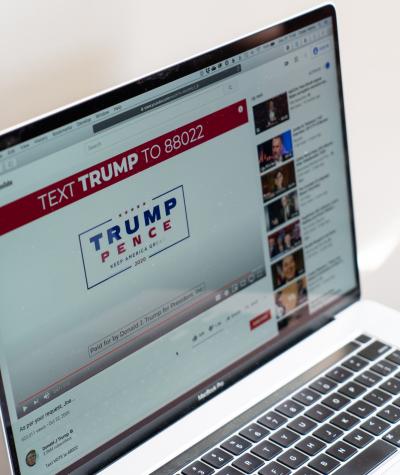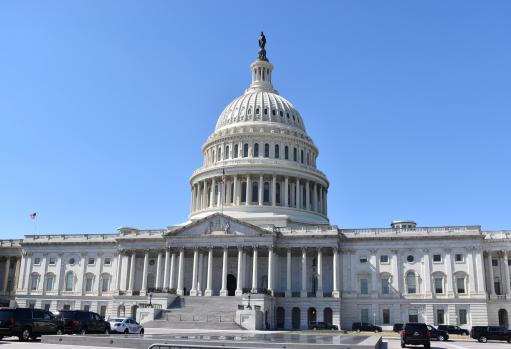Campaign Legal Center (CLC) filed a complaint with the Federal Election Commission (FEC) against a super PAC that made illegal contributions to the Trump campaign by quietly paying to target the campaign’s digital ads to voters in swing states. The super PAC “Our American Century” raised $7.5 million in 2020, and spent $5.5 million on digital ads supporting Trump or opposing Biden.
The case is an illustration of the value of transparency for digital political ads—and of the limitations of a voluntary platform-by-platform approach.
According to Google’s archive of political ads—which includes ads run on YouTube—Our American Century spent between $5,100 and $251,000 to run one of the Trump campaign’s own video ads in Michigan, Arizona, Pennsylvania and Ohio. (Google only provides ad spending costs in broad ranges.)
The super PAC republished the Trump campaign’s ad in its entirety; the ad even included the Trump campaign’s original “paid for by” disclaimer. Voters who received the ad would not have known that it was actually paid for by a super PAC—and voters have a right to know which wealthy special interests are spending money to influence their vote.
This is a clear violation of the law. Just as it is illegal for the super PAC to give Trump $50,000 that his campaign would use to place its ads, it is illegal for the super PAC to spend $50,000 placing the Trump campaign's ads directly.
The FEC, which is the only agency whose sole responsibility is overseeing the integrity of our political campaigns, also has a history of enforcing this provision. A few years ago, the agency issued a $50,000 penalty against a super PAC supporting Mitt Romney’s 2012 presidential run that repurposed a Romney ad from an earlier election cycle. Super PACs are supposed to act independently of the campaigns they support, and the FEC should make that clear by enforcing the law.
Complaint Underscores Value of Digital Ad Transparency
There are no federal requirements that digital political ads be made publicly available: digital ads are usually only viewable by the voters to whom they are targeted. Yet after Russia in 2016 exploited that lack of transparency, and under pressure from the public and Congress, Google and Facebook both voluntarily created public archives of political ads run on their platforms.
Absent Google’s ad archive, Our American Century’s illegal spending would likely never have been identified because the ads would have largely been secret. This illustrates the value of public digital ad archives: among other things, archives allow watchdogs to detect violations of the law.
But the full extent of Our American Century’s violations is not known. Of the $5.5 million that Our American Century spent on digital independent expenditures in 2020, only $259,800 appeared in the Google archive, and a smaller amount was spent on Facebook.
Google’s and Facebook’s archives reveal nothing about ads appearing on other platforms, and it
would appear that the super PAC spent far more on digital advertisements that ran on platforms that have not voluntarily created ad archives, like Hulu. The super PAC’s ads that ran on those platforms are not publicly available, so it is not known whether any portion of that ad spending may have similarly violated the law.
This matter is yet another example of the limitations of voluntary platform-by-platform measures. Since there are no federal rules for digital ad transparency, it is up to platforms to make their own rules—and many platforms have no rules at all. Broader across-the-board digital disclosure legislation is needed.

